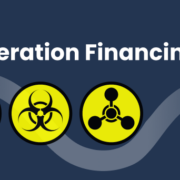Health Privacy – Australia
Course Description
Ensuring the integrity of sensitive health information
Product Description
Compliance with privacy laws is crucial to maintaining customer trust, particularly in the health sector where organisations are constantly under scrutiny for misuse or mishandling of sensitive information such as medical records. With data breaches on the rise, health service providers and other organisations are, now more than ever, prioritising the proper handling of personal and health information.
This course takes learners through the lifecycle of personal information, from collection, use and disclosure, storage, access and correction, and their privacy law obligations at each stage. We use accessible language and practical scenarios to explain and illustrate technical concepts in an engaging way. The introductory module summarises key concepts for front line staff. Subsequent modules explore the Health Privacy Principles (HPPs) in more detail. We also look at mandatory data breach reporting requirements and what to do when an incident arises.
Customer privacy is one of health sector organisations’ biggest operational risks, and this course features real-life cases highlighting the major industry concerns, what organisations are doing right and what they could be doing better
New Update!
We keep our training up to date so that you don’t have to worry about your compliance with the latest developments.
In December 2022 the Australian Government, in response to the Optus data breach and others, passed the Privacy Legislation Amendment (Enforcement and Other Measures) Act 2022, which introduced major financial penalties for both individuals and organisations in relation to privacy breaches. Some penalties are now 20 times as large as they were before – or more.
The new law also significantly expands the Australian Information Commissioner’s powers.
Our training reflects this new legislation.
Who should do this training?
This training is designed for staff at any level within an organisation that comes in contact with private information or could be at risk of breaching Australian privacy laws.
For more information on other GRC Solutions’ privacy training resources:
Australia
Privacy – Covering the Privacy Act and the Australian Privacy Principles
Privacy for Schools – Covering the Privacy Act and the Australian Privacy Principles as they apply to schools
Australia – Financial Services
Financial Services Privacy Training – covering the Privacy Act and the Australian Privacy Principles
Credit Reporting – covering the Credit Reporting Act
New Zealand
Privacy – New Zealand – covering privacy in New Zealand under the 2020 updates to the law
Europe
General Data Protection Regulation – covering the GDPR – which has global implications
Singapore
Data Protection Singapore – covering the Personal Data Protection Act 2012 and also the implications of the GDPR
Malaysia
Data Protection Malaysia – covering the Personal Data Protection Act 2010 and also the implications of the GDPR
California
California Consumer Privacy Act
Course Outline
- Module 1: Introducing privacy
- Module 2: Management and collection
- Module 3: Use or disclosure
- Module 4: Storage, access and correction
- Module 5: Credit reporting obligations









